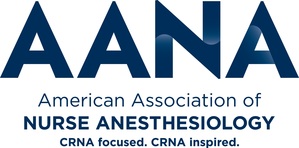ROSEMONT, Ill., Nov. 21, 2024 /PRNewswire/ -- As often the sole provider of anesthesia care to rural communities, Certified Registered Nurse Anesthetists (CRNAs) and the American Association of Nurse Anesthesiology (AANA) understand the unique challenges rural communities face to get and stay healthy.
National Rural Health Day 2024 honors the community-minded focus of CRNAs, also known as nurse anesthesiologists or nurse anesthetists, and other healthcare professionals in rural America. Since 2010, the National Organization of State Offices of Rural Health set aside the third Thursday of every November to showcase the efforts of rural healthcare providers and other stakeholders.
"Today more than ever, rural communities face many barriers to healthcare, including a lack of healthcare providers, the needs of an aging population suffering from more chronic conditions, access to nearby healthcare facilities, and larger percentages of uninsured and underinsured citizens," said AANA President Jan Setnor, MSN, CRNA, Col. (Ret), USAFR, NC. "CRNAs are the primary providers of anesthesia care in rural settings and a solution to accessible anesthesia care. They live in these communities and are instrumental in providing care to patients where they live when they need it most."
Accessing affordable healthcare is a challenge for Americans nationwide. A survey from Gallup and West Health found that just over half (55%) of adults in the United States can access and could afford quality healthcare when needed. In some states, access to healthcare could be more challenging than in others due to high costs, a lack of healthcare coverage, and a shortage of healthcare providers.
Rural settings are often faced with even less access to healthcare providers and facilities, yet their patient populations are some of the most in need. For example, nearly 1 in 4 veterans in the United States lives in rural America. Older patients who may have higher rates of chronic diseases, such as diabetes, heart disease, hypertension, and heart failure face travelling long distances to access the care they need.
"CRNAs form the backbone of access to surgical procedures, including obstetrical deliveries in these rural communities, playing an essential role for all community members from the newest to the oldest," Setnor said. "However, ongoing provider shortages are a barrier to receiving care, and these shortages are felt even more acutely in these rural areas. This is why it is vital that CRNAs are able to practice autonomously, as they are trained to do."
Removing practice barriers for CRNAs would allow them to provide more comprehensive healthcare services to patients across the country.
Visit ICAN action alert for more information about the ICAN Act and to urge your representative to support this legislation.
SOURCE American Association of Nurse Anesthesiology

WANT YOUR COMPANY'S NEWS FEATURED ON PRNEWSWIRE.COM?
Newsrooms &
Influencers
Digital Media
Outlets
Journalists
Opted In




Share this article